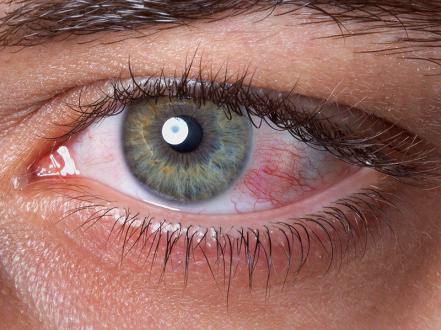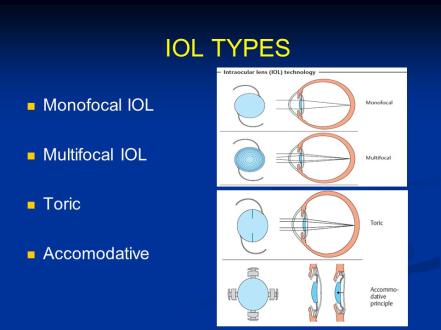Blurred vision can be an annoying and terrifying sensation, especially when it hits suddenly and impairs both eyes. Usually, fuzzy vision originates from an eye incapable of bringing objects into exact focus, thereby producing objects that are either hazy or out of focus. Many people have periodic blurriness of vision from minor issues, including weariness or extreme strain. But the sudden blurry vision in both eyes is different. It's a fast change in how you see that affects clarity and can point to an underlying medical condition. This type of vision change requires attention since it may point to issues beyond of ordinary tiredness or lack of sleep.
From frequent and minor problems to more severe diseases, several triggers could lead to unwanted blurriness. Unlike steady vision loss provoked by aging or refractive issues, sudden blurriness of vision could suggest anything from simple dehydration to more complex medical issues. This overview will help you to find the likely triggers and know when it is advisable to contact professionals at one of the vetted eye clinics for a sight evaluation. Maintaining your overall eye health and vision can mostly rely on your awareness of early signs and knowledge of the underlying reasons for this problem.
Why Did All of a Sudden My Vision Blur?
Sudden blurry vision in both eyes could be the consequence of numerous factors. Among these are some common ones:
Spending Hours Staring at Displays or Small Print:
It might induce tired eye muscles, therefore impairing your visual clarity.
Poor Sleep:
The body cannot function without rest; without it, eyes may become dry and tired, which would produce temporary blurred vision.
Illnesses or Irritants:
Environmental factors, including pollen, dust, or smoke, can irritate the eyes and induce inflammation momentarily obscuring vision.
Regular Use of Contact Lenses:
Particularly over extended periods of time, contacts can dry out the eyes and damage vision.
Any one of these elements can cause temporary, reversible vision disorders.
Common Medical Causes of Sudden Blurriness of Vision in Both Eyes
Unexpected visual problems can be set off by many frequent elements. Knowing these potential offenders speeds up problem identification and solutions. There are numerous medical reasons for sudden blurriness in both eyes. Among the common reasons for bad vision are abnormalities including astigmatism, farsightedness, and nearsightedness. Although these often cause slow vision problems, sudden blurriness may arise from fast changes in visual demands. Also, considering the increasing consumption of digital devices, chronic digital strain is very common.
Still, occasional blurriness of vision could indicate more severe medical conditions including:
- Stroke: Should a stroke affect the parts of the brain in charge of vision, one or both eyes could go blind. Given this is a pretty major symptom, medical help should be sought right away.
- Diabetes: Sometimes high blood sugar levels cause unexpected alterations in vision, a first sign of undetected diabetes. Particularly diabetic retinopathy can over time produce notable and unanticipated vision loss.
- Migraine: Usually affecting both eyes, migraines can create visual distortions. Usually disappearing after the migraine passes, these modifications still have to be disturbing.
When Should You Start Thinking About It?
While many cases of blurriness could be temporary, some symptoms of blurry vision indicate an urgent need for expert assessment, especially if they accompany sudden vision changes. These red signals suggest the need to consult an eye clinic or receive fast treatment:
- Long-term blurry vision without improvement could indicate a more severe eye ailment or underlying medical problem.
- Eye pain combined with sudden blurriness of vision could point to glaucoma or uveitis, disorders that, with the wrong treatment could damage vision.
- Vision changes matching symptoms including slurred speech, weakness, or difficulty speaking could suggest a neurological condition such as a stroke and demand quick attention.
One has to be aware of their body and understand that eye problems are not usually isolated. Your eyes can alert you to an underlying illness by abruptly blurred vision. Professional attention ensures that any troubling symptoms are promptly addressed, so offering mental comfort and minimizing potential issues. Showing these alarming symptoms should not wait for professional advice.
Quick Relief Guide for Sudden Blurred Vision
If the cause of your sudden blurry vision in both eyes is temporary—that of eye strain or dryness—some activities may provide instant relief.
Thus, take a rest. Spend some closed-eyed minutes, especially if you have been staring at a screen for a long period. This reduces the pressure and helps your eye muscles to relax.
Limit the time you spend on screens. Constant screen exposure is one regularly occurring cause of blurred vision. Reducing digital eye strain can be achieved by following the 20-20-20 rule—taking a 20-second break every 20 minutes to observe anything 20 feet away.
Through affecting tear formation, dehydration can lead to dry, uncomfortable eyes. All-day drinking water helps retain natural eye moisture, supporting good vision.
Some people with eye dryness benefit from artificial tears or eye drops; but, if symptoms persist, it is important to contact a doctor. Professional consultation from a specialist in eye diseases could be required to correctly address any underlying issues for longer-lasting or more severe blurriness of vision.
Steering Clear of Foggy Vision: Maintaining Eye Condition
Preventive treatment is largely responsible for avoiding both temporary and more serious eye issues. So your task is to check accurate illumination. Since poor lighting strains the eyes, use enough lighting when reading or working to maintain clear sight.
Also, frequent eye checks are pivotal. From minor refractive errors to more serious disorders, frequent visits are highly beneficial in seeing early signs of prospective issues. An eye check-up provides necessary updates on vision needs and general eye condition.
Being proactive about eye care will help you keep good, clear vision, prevent strain, and reduce the chance of sudden visual difficulties.






